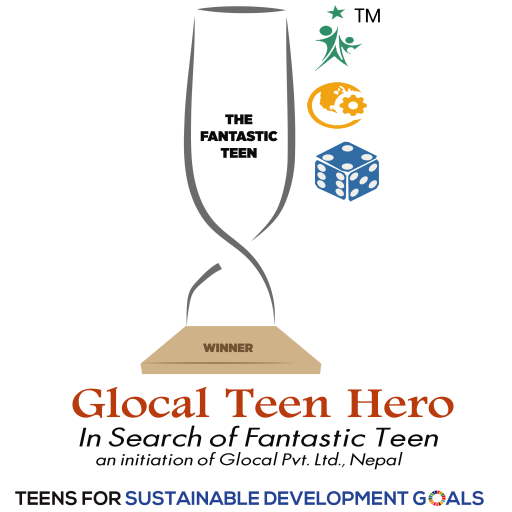It’s never too late to start anything. If you are interested and curious about something, the best time to try it is now, the best time to start it is now. – Yatish Ojha
Yatish Ojha is an energetic young activist, who has been working in the sector of child rights. He motivates youth in social service as well as making them involved in creative and productive activities.
From a very young age; he has been working to make child-friendly local governance by creating awareness. Yatish has worked in different child-led and youth-led organizations. He is a child club graduate who established a child club in the Damak Public Library to engage children in reading books. With his experience working for child rights, he has been mentoring and advising Kamal Rural Municipality level Child Network.
Recently, he is working in Orphix Nepal and writing articles in Shilapatra.com. His dedication and enthusiasm towards bringing impact in society has made him one of the early change-makers and recognized him as one of Glocal’s 20under20 of 2018.
Mr. Ojha believes in change and action. His works truly empower youth to act for positive change. We had a few conversation with him regarding his projects;
1. What is the motive behind working at Orphix Nepal?
Legal literacy in Nepal is extremely poor. The law is as dynamic as a society, but people have not been able to catch the pace of frequently updated laws. Given the importance of law in any society, it is presumed ignorance of the law is no excuse and every member of the nation is supposed to know the law. In this periphery, we, in Orphix Nepal are working to make legal knowledge accessible to as many members of the society. The motive is to make legal learning fun by organising legal discussion sessions and other interactive projects through law students. The social diversity and intersectionality in applying the law is also taken into account during our projects.
2. How were you motivated to work as a Child Right Activist?
Not gonna lie, Children’s Clubs were fun. We used to have weekly meetups every Saturday where we conducted discussions on child rights, quizzes, poem recitations, drawings, singing, chess competition, and other physical sports such as badminton and table tennis. I really used to wait for that Saturday, just because I could go to the Club. My journey to child right activism started like this. So the primary motivation was to have fun while learning in between. I should not forget my school either on this journey. They used to conduct different programmes to make the environment of the school child friendly. I guess it was one of the very few schools in the surrounding with no corporal punishment to students back then. Different workshops and seminars regarding child rights and the mental health of the students were conducted regularly. Experiencing all this and seeing quite the contrary in society did not sit right with me. So, somewhat, it was a motivation as well.
3. What challenge did you face in the initial phase?
You know that children are attracted to rewards and prizes. We were attracted to them while in clubs to be honest. So conducting different competitions every week was fun, but some rewards to the winner and participants would have made it more fun. You can do rights activism once you make the concerned group aware about their rights. And it’s the children we are talking about. Laws and rights and stuff are quite boring for them, it was boring for us too, back then. There must be something to attract children. As I’ve been saying from earlier, there must be fun, learning can be done in between. So yeah, financial problems used to be a challenge to regulate children’s clubs smoothly. Besides it, all parents in the society, including my own, were supportive, and teachers and VDC’s representatives were supportive. I would not say it was tough at the initial phase. But later, as we go further, in the process of developing child-friendly local governance, few challenges were seen. Development of child-friendly public infrastructures, birth registration of all children, pure drinking water and sanitary facilities for all households, etc. were some of the challenging criteria to be met while developing child-friendly local governance. But I guess these challenges actually motivated us to work hard and achieve our objectives.
4. In Shilapatra.com, what kind of content do you create?
I write articles in shilapatra.com. I love to write about legal issues, including the sociological association of the issue and comparative study of the issue in different legal systems. Most of the articles contain a critical assessment of the subject in hand with suitable recommendations regarding legal provisions and practice.
5. What is your future goal?
I am not really the kind of person who sets an aim or a goal or anything of that sort. I used to ace school exams and yet “write an essay about your aim” used to be the most difficult question for me. I regret to inform you that it still is. I like to let life follow its course, while I enjoy walking together with it. But if I really have to answer, I will say I want to be in a place where I can contribute to or influence the legal arena of Nepal. It’s still not concrete and may sound vague. I don’t know what exactly. But I think it’s gonna be law. I am going to do something significant in law which will make me happy and satisfied. And by then, if you ask me again, I will know exactly what my “future goal” was.
